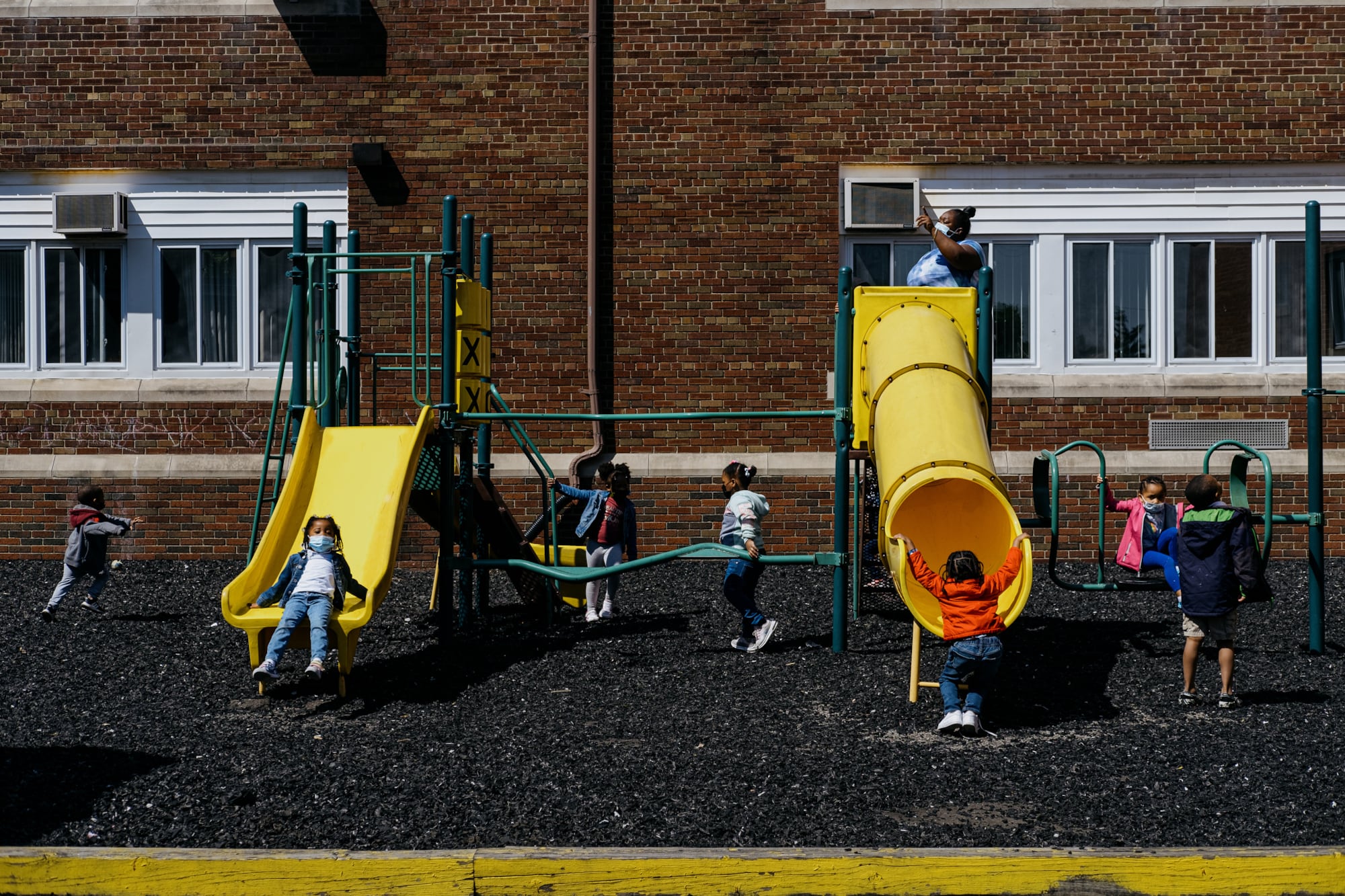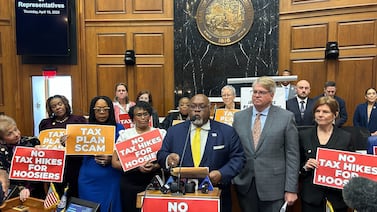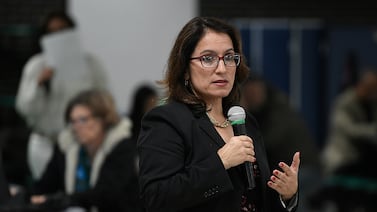This story has been updated with a comment from the Illinois Attorney General’s office.
Illinois law enforcement officials are asking the state to use millions of dollars from a national opioid settlement to better fund early intervention and home visit programs for families facing poverty, single parenthood, addiction, and other adverse conditions.
Fight Crime: Invest in Kids, a nonprofit network of 320 law enforcement officials in Illinois with partners across the country, is pushing for the state to use some of the $760 million it’s expecting to get from four pharmaceutical companies to increase funding for early childhood initiatives to support families impacted by the opioid crisis and to prevent parents or children from using opioids in the future.
These initiatives can intervene early to support parents who struggle with addiction and connect them to treatment options and prevent children from experiencing child neglect and abuse.
At a press conference on Wednesday, J. Hanley, Winnebago County state’s attorney, said this is a personal issue. Hanley’s adopted daughter was born with neonatal abstinence syndrome — a wide range of medical complications in children exposed to opioids in the womb — and currently has delayed speech.
“I think it’s the best way to spend the funds that are coming our way,” said Hanley. “Support children in their earliest years and protect them at that time, but also keep them out of trouble and support our communities going forward.”
When asked if Gov. J.B. Pritzker would support giving a portion of the settlement funds to early childhood programs, a spokesperson for the governor said where the money goes is determined by the attorney general’s office.
In an email statement to Chalkbeat, Illinois Attorney General Kwame Raoul’s office said settlement funds can go to “prevention efforts and enhanced support for children and families,” but did not specifically address the proposal from Fight Crime: Invest in Kids’ proposal.
Earlier this year, Raoul announced that the state would receive approximately $760 million over the next two decades from a $26 billion settlement in a national lawsuit against three major pharmaceutical distributors — Cardinal, McKesson, and AmerisourceBergen — and one manufacturer, Johnson & Johnson.
In July, Pritzker issued an executive order to create the Office of Opioid Settlement Administration to oversee the distribution of settlement dollars. An advisory board made up of state and local appointees and chaired by state’s chief behavioral health officer will make recommendations on how to spend the funds. The board will work with a state opioid steering committee, the Department of Public Health, and the Department of Human Services.
At Wednesday’s press conference, Fight Crime: Invest in Kids Illinois advocates said areas in need of more support are the Illinois Department of Human Services’ home visiting programs, in which trained professionals coach families at home on parenting skills, and Early Intervention services, which support young children with disabilities.
At the press conference, Dora Villarreal, state’s attorney from Rock Island County, said law enforcement officials are “very reactive and instead we need to focus so much more on prevention.”
The state should invest funds in home visiting programs, Villarreal said, especially since those services have struggled to receive new funds. Last year, home visiting programs received a modest increase.
An analysis completed in 2020 by the state’s Prenatal to Three Initiative, currently known as Raising Illinois, found that 15,000 families lack the home visiting help they need. Seventeen Illinois counties have no such services at all. The home visiting program received roughly $1 million in the latest state budget.
Illinois education advocates have said that early childhood education and child care programs are in crisis and funding has been inadequate for years.
Before the fiscal year 2023 budget was approved by the state this year, advocates were pushing for a 10% increase for all early childhood programs to help raise salaries for workers, fund professional development, and keep costs down for families. However, advocates say it’s been difficult to properly fund early education because services are spread out across state agencies such as the State Board of Education, Department of Child and Family Services, and the Department of Human Services.
The state board of education’s Early Childhood Block grant got a 10% increase in this year’s budget, but other programs that early childhood advocates were fighting for did not see a similar increase. The Department of Human Services’ Child Care Assistance Program, which subsidizes the cost of child care for low-income families, stayed flat. Early Intervention regained $7 million that had been cut the previous year.
Samantha Smylie is the state education reporter for Chalkbeat Chicago, covering school districts across the state, legislation, special education, and the state board of education. Contact Samantha at ssmylie@chalkbeat.org.






